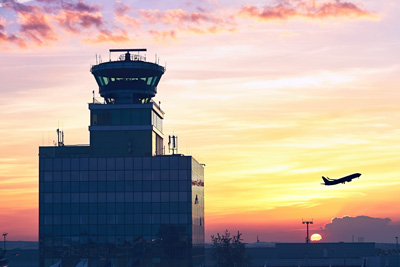 Air Traffic Controllers require a level of alertness not seen in many other vocations. The importance of fatigue reduction has been and will continue to be a primary directive of the FAA, private and international controllers. Despite the implementation of strict fatigue reduction protocols, as many as 70 percent of controllers have reported a feeling of “dozing off” during their shifts. In fact, several studies have found many controllers have been seen to microsleep or even fall fully asleep during their shifts. These issues are especially problematic for those engaged in shift work, or those with light or variable traffic assignments. Ambient darkness and noise suppression in some facilities can often contribute to fatigue and perception issues. Reaction time, recall, prioritization, and conflict resolution are all affected in a controller with sleep deprivation or an undiagnosed and untreated sleep disorder.
Air Traffic Controllers require a level of alertness not seen in many other vocations. The importance of fatigue reduction has been and will continue to be a primary directive of the FAA, private and international controllers. Despite the implementation of strict fatigue reduction protocols, as many as 70 percent of controllers have reported a feeling of “dozing off” during their shifts. In fact, several studies have found many controllers have been seen to microsleep or even fall fully asleep during their shifts. These issues are especially problematic for those engaged in shift work, or those with light or variable traffic assignments. Ambient darkness and noise suppression in some facilities can often contribute to fatigue and perception issues. Reaction time, recall, prioritization, and conflict resolution are all affected in a controller with sleep deprivation or an undiagnosed and untreated sleep disorder.
Aerospace Medical Sleep Consultants can employ custom fatigue detection protocols to determine risk to air traffic controllers and ultimately the aircraft that they manage. We develop and deploy strategies to enhance sleep quality and time, resolve underlying sleep disorders and ultimately mitigate and reduce errors and accidents.